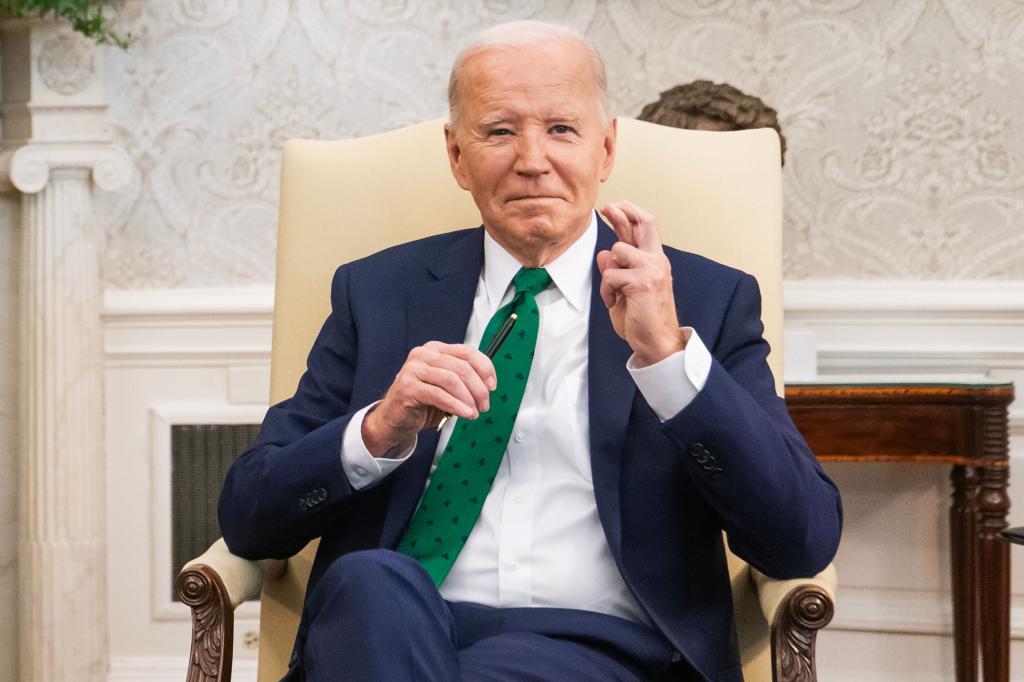Supreme Court justices appear skeptical of censorship claim against Biden White House in Big Tech case
The Supreme Court seemed deeply wary Monday of finding the Biden administration improperly coordinated with Big Tech companies to censor social media posts deemed “misinformation” about topics including the COVID-19 pandemic and the 2020 presidential election.
The White House had challenged lower court rulings barring multiple White House officials from corresponding with companies like Google, Facebook and X about content moderation, decisions the Supreme Court had put on hold while it considers the matter.
The case derives from a lawsuit filed by the Republican state attorneys general of Missouri and Louisiana accusing the Biden administration of leaning on Big Tech to remove postings that didn’t jibe with the government narrative of the pandemic and other controversial topics.
Across the court’s ideological lines, the justices suggested that the lower courts had overstepped by restricting communications between government officials and the platforms.
At one point, liberal Justice Ketanji Brown Jackson asked Louisiana Solicitor General J. Benjamin Aguiñaga: “Suppose someone started posting about a new teen challenge that involves teens jumping out of windows at increasing elevations?”
“Is it your view,” the justice went on, “that the government authorities could not declare those circumstances a public emergency and encourage social media platforms to take down the information?”
Aguiñaga argued that the government can use its bully pulpit to push back against a budding public health epidemic and can even call up social media companies to convey those concerns to them, but drew a line at pressuring them.
“The moment that the government tries to use its ability … and its stature as the government to pressure them to take it down, that is when you’re interfering with third-party speech rights,” he argued.
Conservative Justice Amy Coney Barrett pressed Aguiñaga about whether the government could call up social media companies and pressure them to take down material that doxxed individuals, but stopped “short of actually being illegal.”
“Do you know how often the FBI makes those kinds of calls?” Barrett exclaimed after Aguiñaga suggested the government should not make such a notification.
Keep up with today's most important news
Stay up on the very latest with Evening Update.
Thanks for signing up!
Another liberal justice, Sonia Sotomayor, told Aguiñaga that “I have such a problem with your brief.”
“You omit information that changes the context of some of your claims,” the Bronx-born jurist scolded, later adding: “I don’t know what to make of all this.”
Aguiñaga apologized “if any aspect of our brief was not as forthcoming as it should have been.”
One of Aguiñaga’s few reprieves came from conservative Justice Samuel Alito, who suggested the questions from his colleagues “have gotten off into questions that I didn’t take it from your brief [that] you think we actually need to decide in this case.”
In his opening statement, the Pelican State’s top lawyer argued that “behind closed doors, the government badgers the platforms 24/7.
“It abuses them with profanity,” he added. “It ominously says that the White House is considering its options … all to get the platforms to censor more speech.”
“Under this onslaught,” Aguiñaga went on, “the platforms routinely cave.”
Some of the justices drew parallels between the tech companies’ experience with the government and their own relationship with the media.
“My experience is the United States, in all its manifestations, has regular communications with the media to talk about things they don’t like or don’t want to see or complaining about factual inaccuracies,” Justice Brett Kavanaugh said at one point, hearkening back to his days as White House staff secretary in the George W. Bush administration.
Liberal Justice Elena Kagan told Aguiñaga his argument was “extremely expansive.”
“Like Justice Kavanaugh, I’ve had some experience encouraging [the] press to suppress their own speech,” she added.
US Principal Deputy Solicitor General Brian Fletcher, representing the Biden administration, contended that the government was not instructing social media platforms to remove content, but merely giving advice while the firms were acting on their own volition.
“We’re not disputing that when the private platforms moderated the plaintiffs’ pages or their posts, that’s an injury in some sense,” Fletcher said. “We have disputed the traceability question and then the redressability question.”
Alito responded that lower courts had “found that the injury was traceable to the government’s actions.”
“We don’t usually reverse findings of fact that have been endorsed by two lower courts,” he added.
Fletcher also contended that the injunction was “extremely vague” and could hamper administration officials — though not President Biden — from discussing concerns such as “the circulation of antisemitic or Islamophobic content on social media platforms.”
Some conservative justices took issue with Fletcher’s characterization that the administration was merely encouraging platforms to adjust their policies.
Justice Neil Gorsuch alluded to Biden’s public remarks from the summer of 2021 that Facebook was “killing people” by not being more aggressive at taking down posts skeptical of coronavirus vaccines.
“Could that be coercion, in some circumstances? That if you don’t change your operation policies, you’re responsible for killing people?” Gorsuch asked.
Fletcher noted that Biden had walked back that statement.
The justices are expected to rule on the case, Murthy v. Missouri, by the end of June.



















